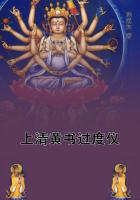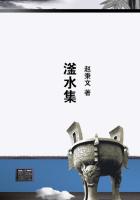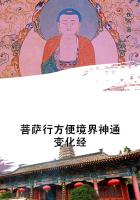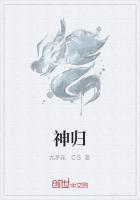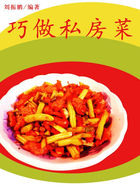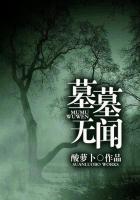I know not why any plant or herb of the field should be a greater luxury in one country than another; but an overgrown estate in either is a luxury at all times, and, as such, is the proper object of taxation.It is, therefore, right to take those kind tax-making gentlemen up on their own word, and argue on the principle themselves have laid down, that of taxing luxuries.If they or their champion, Mr.Burke, who, I fear, is growing out of date, like the man in armour, can prove that an estate of twenty, thirty, or forty thousand pounds a year is not a luxury, I will give up the argument.
Admitting that any annual sum, say, for instance, one thousand pounds, is necessary or sufficient for the support of a family, consequently the second thousand is of the nature of a luxury, the third still more so, and by proceeding on, we shall at last arrive at a sum that may not improperly be called a prohibitable luxury.
It would be impolitic to set bounds to property acquired by industry, and therefore it is right to place the prohibition beyond the probable acquisition to which industry can extend; but there ought to be a limit to property or the accumulation of it by bequest.It should pass in some other line.The richest in every nation have poor relations, and those often very near in consanguinity.
The following table of progressive taxation is constructed on the above principles, and as a substitute for the commutation tax.
It will reach the point of prohibition by a regular operation, and thereby supersede the aristocratical law of primogeniture.
TABLE I
A tax on all estates of the clear yearly value of L50, after deducting the land tax, and up To L5000s 3d per pound From L500
to L1,000 0
6
On the second thousand 0
9
On the third "
10
On the fourth"
16
On the fifth "
20
On the sixth "
30
On the seventh "
40
On the eighth"
50
On the ninth "
6s 0d per pound On the tenth "
70
On the eleventh "
80
On the twelfth "
90
On the thirteenth" 10
0
On the fourteenth" 11
0
On the fifteenth " 12
0
On the sixteenth " 13
0
On the seventeenth " 14
0
On the eighteenth" 15
0
On the nineteenth" 16
0
On the twentieth " 17
0
On the twenty-first " 18
0
On the twenty-second " 190
On the twenty-third " 20
0
The foregoing table shows the progression per pound on every progressive thousand.The following table shows the amount of the tax on every thousand separately, and in the last column the total amount of all the separate sums collected.
TABLE II
An estate of:
L 50 per annum at 3d per pound pays L0 126
100 ""
"
" 15
0
200 ""
"
" 2 10
0
300 ""
"
" 3 15
0
400 ""
"
" 50
0
500 ""
"
" 75
0
After L500, the tax of 6d.per pound takes place on the second L500;consequently an estate of L1,000 per annum pays L2l, 15s., and so on.
For the 1st L500 at 0s 3d per pound L7 5s 2nd " 0614 10 L21 15s 2nd 1000 at 09
37 11 595
3rd " 10
50 0 1095
4th 1000 at 1s 6d per pound L75 0s L1845s 5th " 20
100 0 2845
6th " 30
150 0 4345
7th " 40
200 0 6345
8th " 50
250 0 8805
9th " 60
300 011005
10th "
70
350 015305
11th "
80
400 019305
12th "
90
450 023805
13th "
100
500 028805
14th "
110
550 034305
15th "
120
600 040305
16th "
130
650 046805
17th "
140
700 053805
18th "
150
750 061305
19th "
160
800 069305
20th "
170
850 077805
21st "
180
900 086805
22nd 1000 at 19s 0d per pound L950 0s L96305s 23rd "
200
1000 0 106305
At the twenty-third thousand the tax becomes 20s.in the pound, and consequently every thousand beyond that sum can produce no profit but by dividing the estate.Yet formidable as this tax appears, it will not, I believe, produce so much as the commutation tax; should it produce more, it ought to be lowered to that amount upon estates under two or three thousand a year.
On small and middling estates it is lighter (as it is intended to be)than the commutation tax.It is not till after seven or eight thousand a year that it begins to be heavy.The object is not so much the produce of the tax as the justice of the measure.The aristocracy has screened itself too much, and this serves to restore a part of the lost equilibrium.
As an instance of its screening itself, it is only necessary to look back to the first establishment of the excise laws, at what is called the Restoration, or the coming of Charles the Second.The aristocratical interest then in power, commuted the feudal services itself was under, by laying a tax on beer brewed for sale;that is, they compounded with Charles for an exemption from those services for themselves and their heirs, by a tax to be paid by other people.The aristocracy do not purchase beer brewed for sale, but brew their own beer free of the duty, and if any commutation at that time were necessary, it ought to have been at the expense of those for whom the exemptions from those services were intended;*[37] instead of which, it was thrown on an entirely different class of men.
But the chief object of this progressive tax (besides the justice of rendering taxes more equal than they are) is, as already stated, to extirpate the overgrown influence arising from the unnatural law of primogeniture, and which is one of the principal sources of corruption at elections.
It would be attended with no good consequences to enquire how such vast estates as thirty, forty, or fifty thousand a year could commence, and that at a time when commerce and manufactures were not in a state to admit of such acquisitions.Let it be sufficient to remedy the evil by putting them in a condition of descending again to the community by the quiet means of apportioning them among all the heirs and heiresses of those families.
This will be the more necessary, because hitherto the aristocracy have quartered their younger children and connections upon the public in useless posts, places and offices, which when abolished will leave them destitute, unless the law of primogeniture be also abolished or superseded.

